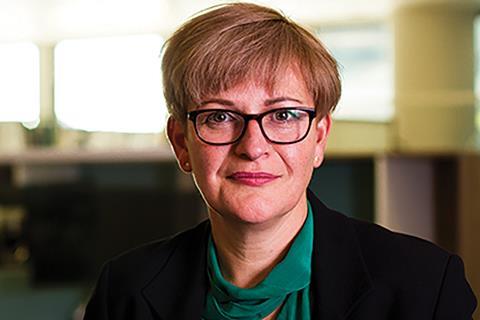Senior associate, Fieldfisher, London

Who? Caron Heyes, senior associate, Fieldfisher, London.
Why is she in the news? Represents the family of 49-year-old Rachel Johnston who became severely disabled after contracting meningitis as a baby. Rachel died last year after all her teeth were removed at Kidderminster Hospital in Worcestershire under a general anaesthetic. Following submissions from the family, the coroner has agreed to fully investigate her death.
Thoughts on the case: ‘The crux of this case, which came to me via Mencap and our pro bono team, is that when doctors are considering treatment options for patients with learning disabilities and who lack capacity, they work with the patient’s family to consider the best options. That should be as rigorous a process of informed consent as for adult patients with capacity. Yet in this case, and in others I have seen, the consent process was not rigorous.’
Worcestershire Health and Care NHS Trust, Worcestershire Acute Hospitals NHS Trust and NHS Wyre Forest Clinical Commissioning Group said: ‘Both trusts have completed internal serious incident reports which is usual in a case like this and are also participating in the wider review led by the CCG looking at the care provided by all of the agencies involved.’
Dealing with the media: ‘The media informs the public about unacceptable medical practice that goes beyond a single case. Telling Rachel’s story highlights when change is urgently needed. I find most journalists treat people like [Rachel’s mother], who is grieving terribly, with respect to help tell her story accurately and with feeling. In that sense, media is invaluable. Vitally, the BBC refrained from sensationalising the case. The facts are tragic enough and do not need extra spin.’
Why become a lawyer? ‘I wanted to change society and thought law was a route to that. Of course, the reality is that my field of work can substantially impact the lives of individual clients, but it’s rare to work on a case that highlights problems in care for a cohort of patients. I get huge satisfaction from doing a job well for my clients.’
Career high: ‘Every case won for a client is a high, but at the same time tempered with the bittersweet knowledge that winning a case means proving that a medical institution gave someone the wrong care and caused catastrophic harm.’
Career low: ‘Losing at trial for a family who lost their daughter due to care the hospital trust admitted was substandard. [The hospital] denied it had done anything more than hasten an inevitable death. They were exceptionally dignified and brave in the face of the evidence and cross-examination, and I will always be frustrated at the outcome.’































No comments yet